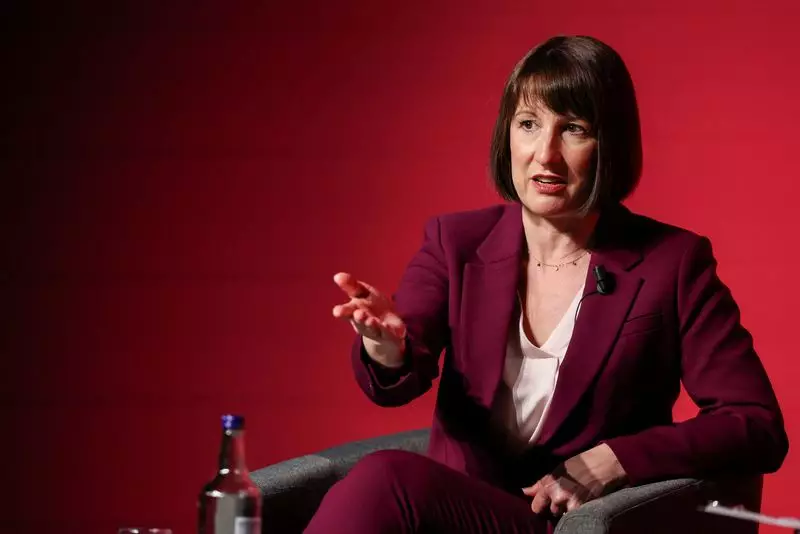As Britain navigates turbulent economic waters, the task ahead for the newly appointed Finance Minister, Rachel Reeves, is daunting. When she presents her budget on October 30, Reeves may face an uphill battle requiring a potential tax increase of £25 billion ($33 billion). Such a move, if implemented, aims to reinforce essential public services, including foundational sectors like law enforcement and correctional facilities. This assertion emerges from a report by the Institute for Fiscal Studies (IFS), a respected non-partisan think tank, emphasizing that without substantial financial maneuvering, the government risks shrinking budgets in relation to the broader economy.
In the backdrop of Labour’s recent electoral triumph, where a £9 billion tax hike was initially slated during the campaign, the IFS’s findings suggest that Reeves may have to adopt a more aggressive fiscal strategy. In the context of current economic strains and the increasing demands on public resources, this does not come as a surprise. Paul Johnson, the director of the IFS, articulated that without significant alterations to the fiscal structure, the government may struggle to maintain its commitment to both investment and public service funding. This could result in either elevated taxes, increased borrowing, or a combination of both: a balancing act that will reflect the Chancellor’s priorities and the government’s overall economic strategy.
Reeves has inherited a challenging financial portfolio, exacerbated by public service criticisms and rising discontent among the populace, particularly regarding pensions and essential subsidies. Prime Minister Keir Starmer’s administration, facing a decline in popularity—partly attributed to cuts to winter fuel subsidies for vulnerable groups—has put added pressure on Reeves. In a recent statement, a finance ministry representative acknowledged the difficult financial situation, underscoring the administration’s responsibility to rise above past challenges to pave the way for progress.
The discourse around public finances is not merely academic; it represents the livelihood of everyday citizens. The proposed adjustments to budgetary rules signify a more nuanced approach—Reeves intends to target a balanced budget excluding investment costs. However, the broad interpretation of what constitutes public debt is under scrutiny, with the potential to facilitate additional borrowing that could amount to £50 billion, according to IFS projections.
Significantly, these fiscal strategies are not occurring in a vacuum. Concerns linger among international bond investors about the potential for increased national debt, a sensitivity heightened by memories of previous market disturbances, notably those spurred by former Prime Minister Liz Truss’s controversial budget. As a result, the yield spread on 30-year British government bonds compared to German debt recently reached alarming levels. Benjamin Nabarro, chief UK economist at Citi, points to a palpable unease among investors, suggesting that any perceived leniency in borrowing could jeopardize investor confidence.
Moreover, Nabarro stipulates that the establishment of “guardrails” for any extra borrowing is essential. He emphasizes the necessity of stringent oversight to ensure that the additional funds do not become a mere fiscal crutch but rather a calculated investment aimed at fostering economic stability. The dialogue suggests that without credible commitment to fiscal responsibility, the very foundation of Britain’s bond market may be at risk.
Reeves’ upcoming budget arrives at a critical juncture, one that demands not only her adept financial acumen but also a firm grasp of public sentiment and investor psychology. As she prepares her first fiscal plan, the stakes have never been higher. A pragmatic approach balancing tax increments with a vision for revitalizing public services, while assuring both the public and markets of a rigorous financial strategy, will be crucial.
The challenges she faces are clear, and the decisions ahead will undoubtedly shape Britain’s economic landscape for years to come. Whether she can instill confidence among the populace and investors alike remains an open question, one that will unfold in the coming weeks and months with the significant unveiling of her budgetary strategy.

